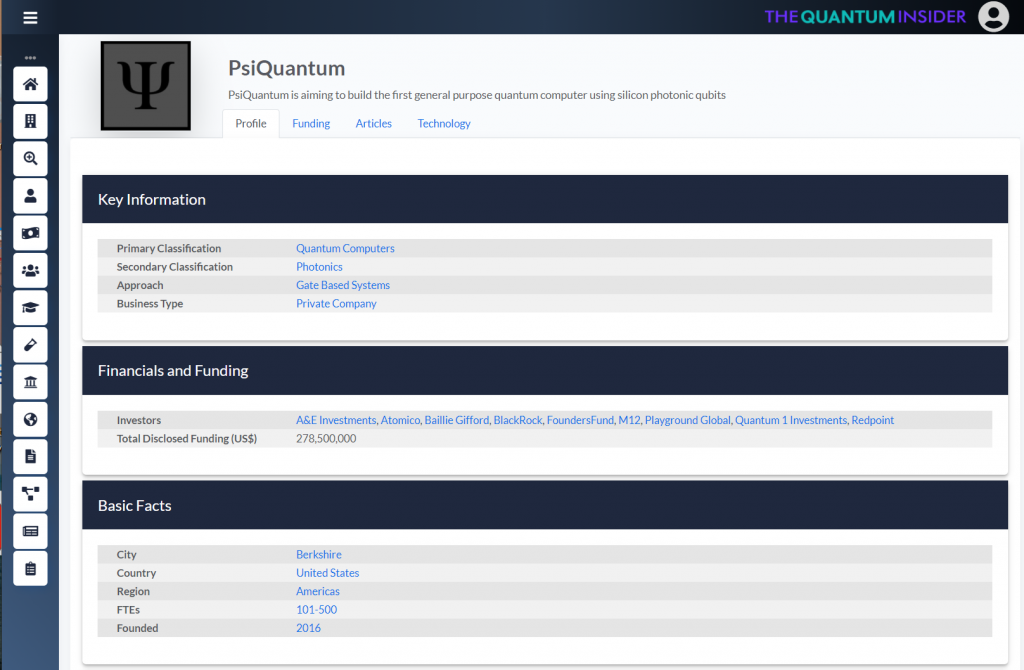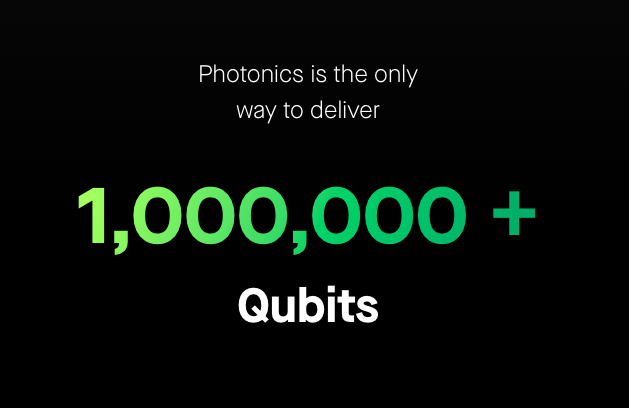
By the middle of the decade, the team from PsiQuantum will have a commercial quantum computer, according to the Financial Times. The founders are also indicating they are ready to emerge from stealth.
PsiQuantum has been mostly silent about its quantum computer development but with its scientific bench composed of leading UK physicists and nearly $300 million in venture capital funding, according to The Quantum Insider, that silence has been deafening.

The company, which is based in Palo Alto, California, is building silicon photonic quantum computers and is headed by a leading researcher in that field, Jeremy O’Brien, who serves as chief executive of PsiQuantum.
While classical computers use bits that are either 1 or 0, quantum computers are based on qubits that can be in a weird mixed state — called a superposition — that’s both 1 and 0. Superposition and entanglement, which gives those qubits their exponential computing potential, are very sensitive states that are challenging for quantum computing approaches to maintain. Most of those approaches use atomic particles, such as atoms traveling through superconducting circuits, but PsiQuantum’s approach uses photons — light particles.
PsiQuantum, which calls its machine, “the Q-1,” is not shy about the potential for photonic quantum computers to tackle the major challenges of building quantum computers.

“We’re now at a point where we have solved the critical roadblocks on the path to building a quantum computer with a million qubits, the scale required for all known useful commercial applications,” O’Brien told the FT.
O’Brien, Professorial Research Fellow in Physics and Electrical Engineering at the University of Bristol and director of its Centre for Quantum Photonics, has more than a decade of research into optical quantum computing. He believes that the company’s approach solves many of the hurdles the quantum industry faces in scaling the devices, including “manufacturability, cooling power, connectivity and control electronics.”
Co-founder Pete Shadbolt told FT its whole-system approach offers advantages over competitors that have built smaller devices using a few tens of qubits. These devices may be able to beat out conventional computers in very specific tasks, but he doubts these systems can be scaled.
Speaking of pedigree, Terry Rudolph, another PsiQuantum co-founder, professor of quantum physics and author of Q is for Quantum, just happens to be the grandson of Erwin Schrödinger, a fact he learned only after he received his physics degree.
PsiQuantum will likely follow the Quantum Computing as a Service (QCaaS) model. In this model, customers access the quantum computer through the internet. Shadbolt expects quantum computers to be room-sized and that a bench-top quantum computer is highly unlikely.
FT reports that the reason for the emergence from stealth may be a result of its partnership with GlobalFoundries, one of the world’s leading semiconductor makers that is now making chips for PsiQuantum at its US- and Germany-based plants.
The interview with FT may represent an initial step out of stealth and into the spotlight — where it will find a growing ecosystem of quantum computer-makers already vying for attention.
“I think the reputation of our company is a moody bunch of people who don’t say much,” Shadbolt told FT. “The time has come for us to talk about what we’re doing.
TQD analysis
- PsiQuantum has been one of the quieter businesses in the quantum technology space and therefore evoked significant curiosity from the quantum community.
- Its focus on building a commercial quantum computer by 2025 is not in itself unique; IonQ and IBM are examples of companies with similar roadmaps. However, many researchers are seeing photonics based quantum computers as offering good scalability, as evidenced by the recent progress made by Xanadu.
- We will await further detail on PsiQuantum’s roadmap and publications before commenting further on whether this is represents the start of significant breakthroughs or rather a previously secretive company choosing to become more public about its ambitious goals.
If you found this article to be informative, you can explore more current quantum news here, exclusives, interviews, and podcasts.



















